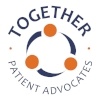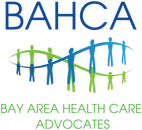Congenital heart defects (CHD), which affect both the structure and function of the heart, are the most common type of birth defect. Yet prior to the 1950’s, with no way to surgically repair the heart defects, CHD almost always led to an early death.
Congenital Heart Defect Survivors Need Life-Long Care
[fa icon="calendar'] Aug 13, 2021 3:00:00 AM / by Donna Smith, BCPA posted in self-advocacy, Congenital Heart Defects
How to Write an Advance Care Directive & POLST
[fa icon="calendar'] Jul 9, 2021 3:00:00 AM / by Kim Mcilnay, BCPA posted in self-advocacy, Planning, advance directive
In my previous post we reviewed the importance of an advance care directive. Now let’s explore how you can create your own advance care directive, including the use of some helpful websites. I’ll also tell you about an additional important document – Physician’s Orders for Life-Sustain Treatment, most commonly referred to as a POLST.
Making Informed Health Care Decisions
[fa icon="calendar'] May 14, 2021 5:00:00 AM / by Kim Mcilnay, BCPA posted in self-advocacy, Informed Decisions
As a patient, your right to make informed health care decisions before receiving treatment or services is called "informed consent." In order for full informed consent to take place, you must completely understand the following (and be able to explain them in your own words, as opposed to just repeating medical jargon):
Authorizations and Referrals
[fa icon="calendar'] Apr 23, 2021 2:00:00 AM / by Kim Mcilnay, BCPA posted in self-advocacy, Insurance
We've all been frustrated when referrals or authorizations don't happen as promised. There are fairly simple and straightforward steps you can take to facilitate this process to ensure you get the care you need in the time frame you need it.
You’ve Been Diagnosed with Cancer – Now What?
[fa icon="calendar'] Mar 12, 2021 5:30:00 AM / by Kim Mcilnay, BCPA posted in self-advocacy, Cancer
Receiving a cancer diagnosis can be frightening. It’s hard to know what to do next.
How to Make Access to Clinical Notes Work for You
[fa icon="calendar'] Jan 29, 2021 5:15:00 AM / by Kim Mcilnay, BCPA posted in self-advocacy, Open Access, Clinical Notes
On April 5, 2021 the federal government is expected to mandate immediate patient access to their electronic clinical notes. Many medical systems are already releasing these notes to your electronic healthcare portal in preparation for this mandate. As a result, at no cost, you will have access to these records:
What’s the Difference between a Physician and a Nurse Practitioner?
[fa icon="calendar'] Oct 16, 2020 7:15:00 AM / by Kim Mcilnay, BCPA posted in self-advocacy, preparing for your doctor's appointment, ER
I
For a moment, I would like you to imagine yourself in the following situation.
You are in the exam room for your diabetic check-up, expecting to see a familiar face. But instead of your primary care physician, a stranger walks in. This individual is not a physician but is a nurse practitioner (NP). Do you know the difference between the two?
CONSIDERATIONS: REGULAR, ON-GOING MEDICAL CARE DURING COVID19 PANDEMIC
[fa icon="calendar'] Mar 26, 2020 3:29:31 PM / by Kim Mcilnay, BCPA posted in self-advocacy, preparing for your doctor's appointment, elderly illness, Medicare, technology, COVID-19, Coronavirus
Crash Course in Nursing Homes: Summary of 11 Lessons Learned
[fa icon="calendar'] Feb 5, 2019 5:04:00 AM / by Kim Mcilnay, BCPA posted in self-advocacy, elderly illness, Medicare, medi-cal, Nursing Home/Skilled Nursing Facility
In the preceding blogs titled Crash Course in Nursing Homes, Part 1, Part 2 and Part 3, I shared Susan's experiences with illegal nursing home practices and lessons learned. This post summarized the lessons learned for easy reference.
Lesson 1: Rehab/nursing home stays are only covered by Medicare if a patient is first admitted to a hospital for 3 midnights. You may think you're admitted to the hospital but you may actually only be on observation status. Observation status does not qualify you for medicare coverage for a skilled nursing facility. Ask your nurse, doctor, or the admissions team if you are "admitted" or on "observation status."
Crash Course in Nursing Homes Part 3: Final Lessons
[fa icon="calendar'] Feb 4, 2019 6:51:00 AM / by Kim Mcilnay, BCPA posted in self-advocacy, medi-cal, Nursing Home/Skilled Nursing Facility
In Part 1, I shared Susan's story and reviewed Lessons 1-3. Susan was staying in a Skilled Nursing Facility (SNF) for rehab and was unsafe for discharge to home. The SNF threatened eviction once Susan's Medicare approved stay was completed. In Part 2, I shared the steps we took to fight Susan's illegal eviction and reviewed Lessons 4-8. Today's post will cover final lessons learned, including a resident's rights when transferred to the hospital.
Susan lived comfortably in the nursing home for several months under Medi-Cal custodial care payment when an illness required her to transfer to the hospital.
Lesson 9: Skilled Nursing Facilities are required to readmit residents within 30 days of transfer to the hospital and they are required to hold the resident's same bed if transferred to the hospital for less than 7 days. I was aware of these regulations already. We requested to sign a bed hold form at the facility. This bed hold meant that Susan's exact bed would be available to her for the next 7 days.












.gif?width=200&name=NAHAC-Member-Badge200x112+(1).gif)


